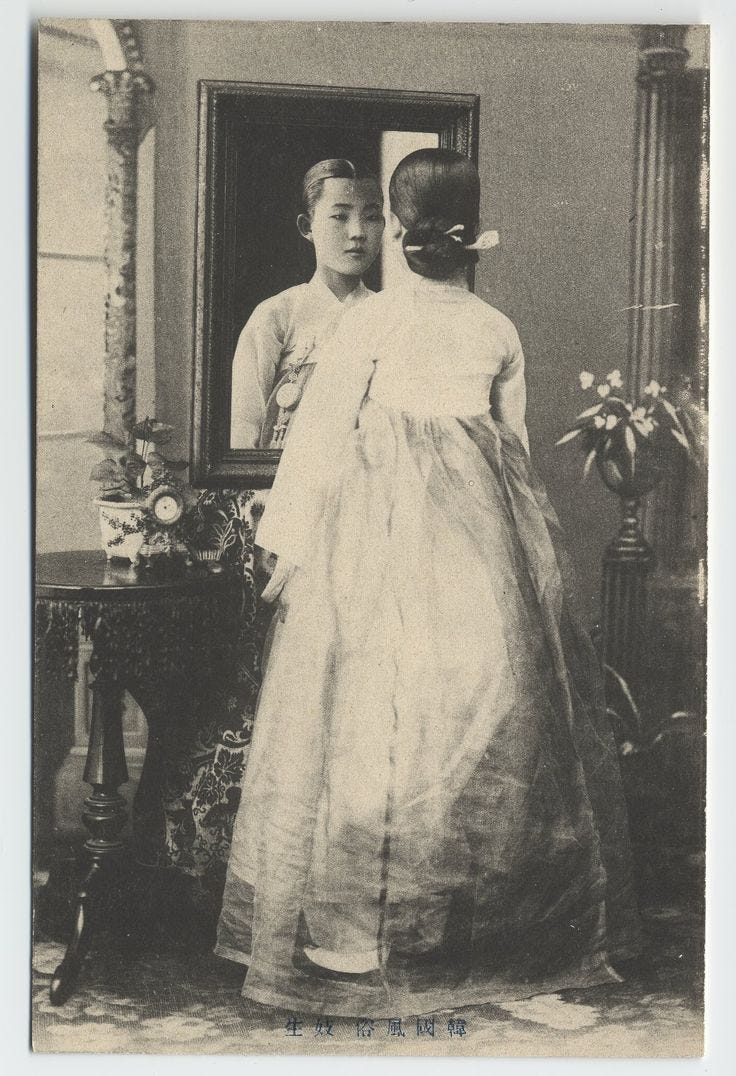Knight Flower Screencap
The eunjangdo (은장도), a small, intricately crafted silver blade, carries a weight far beyond its physical size. Rooted in Korean history and tradition, it was more than just a practical tool—it was a symbol, a safeguard, and at times, a final act of autonomy. In its delicate, ornamental form lies a sharp paradox: beauty paired with lethality, vulnerability veiled by strength. This paradox is why the eunjangdo resonates so deeply in Korean literature, where it frequently appears as a motif for defiance, despair, and the complex interplay of autonomy and societal expectation.
Historically, eunjangdo was carried by women as both an accessory and a tool for self-defense. Its delicate, ornamental appearance often concealed its deadly potential, mirroring the dual expectations placed on women to embody both beauty and strength. Beyond its practical use, the eunjangdo held a darker connotation. In a deeply Confucian society that placed immense pressure on women to uphold family honor, the knife became a means of ultimate control. Women facing unbearable shame, dishonor, or insurmountable societal constraints sometimes used the eunjangdo to end their lives. In this context, the blade represents not only despair but also a desperate act of agency in a world that often denied women autonomy.
This dual symbolism of defiance and despair imbued the eunjangdo with profound cultural meaning. It was carried close to the body, tucked discreetly into a hanbok or attached to a sash, a constant companion that silently bore witness to a woman’s inner life.
The eunjangdo transcends its historical role as a practical and symbolic accessory to become a poignant literary motif in Korean storytelling. Often hidden within the folds of a hanbok, mirrors the hidden strength of women navigating patriarchal structures. Its discreet nature reflects the quiet yet potent power of women who are often underestimated or overlooked. In literature, this motif frequently highlights the inner resilience of female characters. The blade becomes a metaphor for the unspoken defiance brewing beneath the surface of their outwardly composed demeanor.
Han Kang’s The Vegetarian serves as a modern embodiment of the eunjangdo’s symbolic weight. The protagonist, Yeong-hye, refuses to consume meat—a simple act that grows into a rebellion against the suffocating expectations of her family and society. Though there is no physical blade in her story, her quiet, escalating resistance mirrors the spirit of the eunjangdo: a refusal to comply, a yearning for control, a statement made in the language of extremes. Her choices, misunderstood and feared by those around her, are her own. She carves out her autonomy with the same unrelenting force the blade once represented.
The eunjangdo stands for the unbearable weight that Korean women have carried, and the desperate measures they have taken to lighten that burden. It is both an act of defiance and a cry of despair, a tool that offers the illusion of freedom in a world where true liberation often seems unreachable. To wield it is to choose, even in the face of choices designed to trap.
“ She had never lived. Even as a child, as far back as she could remember, she had done nothing but endure.” - The Vegetarian by Han Kang
In literature, as in life, the eunjangdo reflects the extremes women go to in reclaiming themselves. It is not just a weapon but a symbol of survival, of protest, of the quiet, unyielding strength it takes to break free. Like the blade, small and seemingly unassuming, these acts of rebellion cut deeper than anyone expects. They leave scars not on the wielder, but on the systems that sought to confine them.
In today’s fractured and tumultuous world, the eunjangdo speaks to battles for autonomy that are rarely fought in the open. It whispers of struggles waged quietly, in spaces where defiance often looks like endurance, and rebellion is carried out in silence. The blade, small and intimate, mirrors the unseen battles of women who must navigate constraints that press in from all sides.
It reminds us that freedom is rarely granted; it is fought for, carved out of systems that demand compliance. The eunjangdo carries the weight of choices made in impossible circumstances, a testament to those who resist not with grand gestures, but with quiet strength. It is a symbol of the resilience it takes to reclaim even a sliver of control in a world that so often denies it.
The eunjangdo cuts through time, through expectation, through silence. It is a call to recognize the courage it takes to resist in a world that seeks to confine. It is not just a relic but a living symbol, a quiet rebellion that whispers: even in the shadow of oppression, freedom is worth the fight.
Hey guys, this piece holds a special place in my heart—it’s been sitting in my planner as a must-write for a long time. I took my first Korean literature class in university with the hope of delving deeper into my roots and connecting with the stories that shaped my heritage. Writing this allowed me to revisit those moments of discovery, where literature became a bridge to understanding not only the history of a people but the resilience and complexity of their experiences.
Thank you for taking the time to read and I hope this piece resonates with you as much as it does with me, and perhaps even inspires you to think about the ways strength and defiance can manifest in the smallest, most unassuming forms.
Your support means everything, and I’m so excited to continue sharing more of these deeply personal and reflective pieces with you. 🖤







ah this was beautiful beyond words, thank you for sharing it ! i’m currently learning korean and studying korean history (with a special focus on korean women’s history) so finding more content like this truly makes me happy!!! i would love to see more if you ever feel like posting ♡
i love your substack so much i'm literally your biggest fan